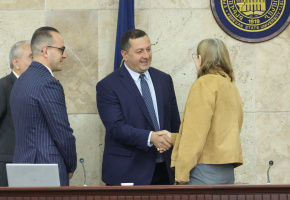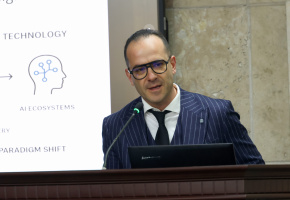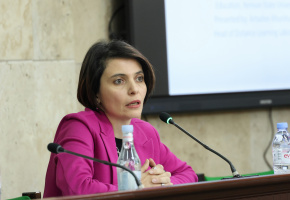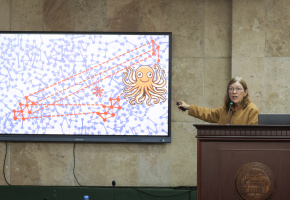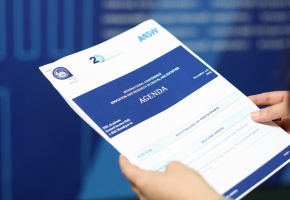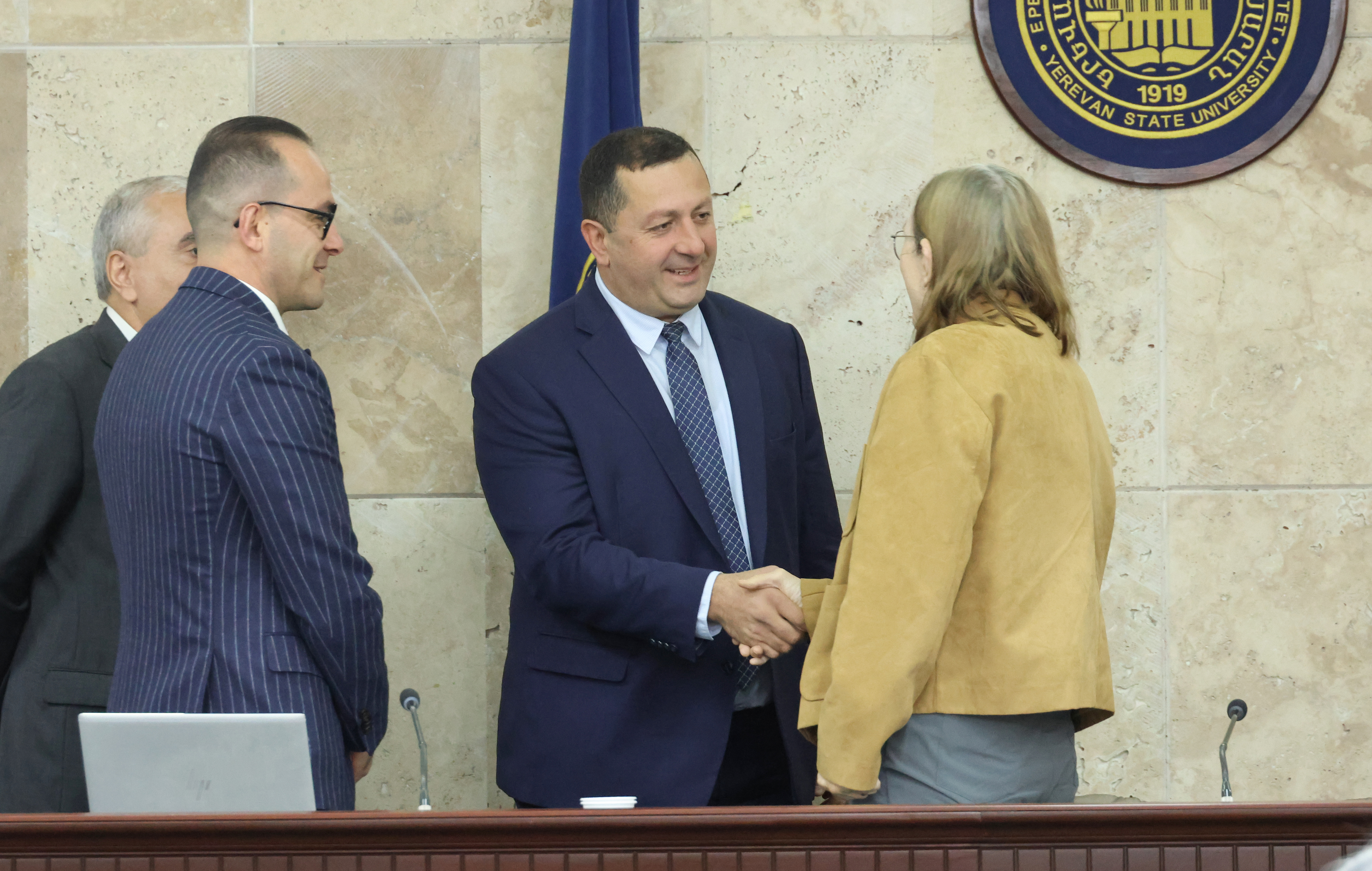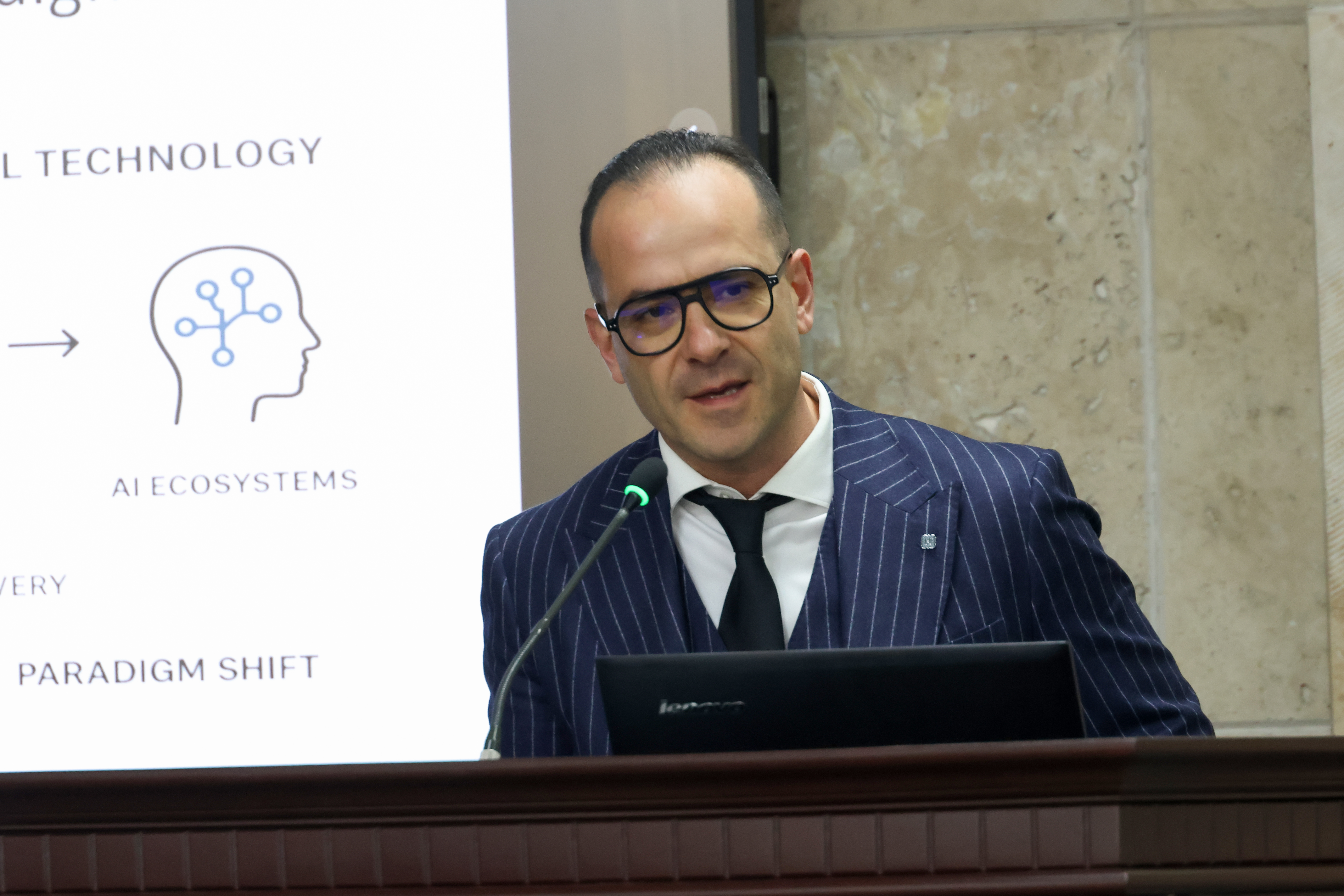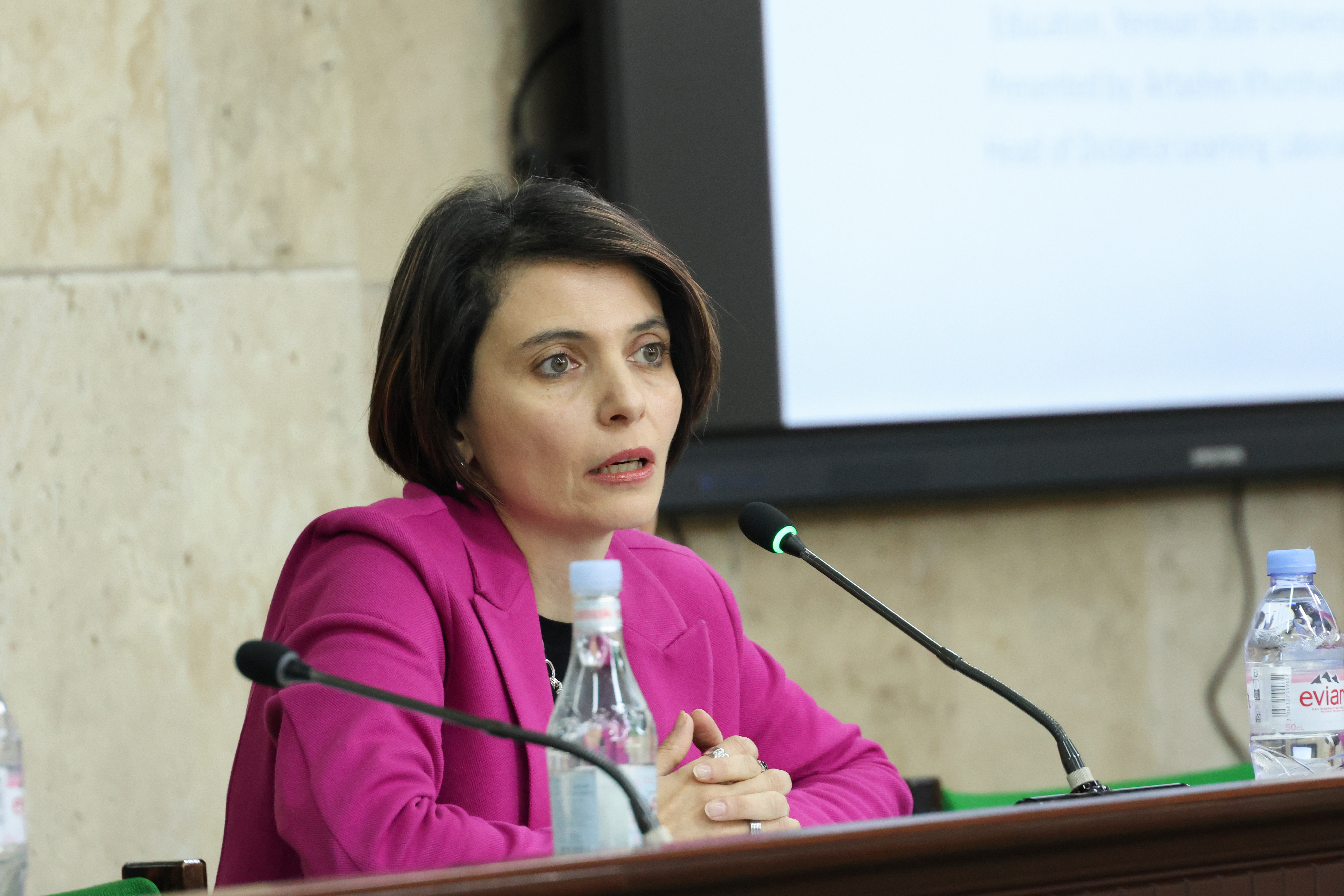November 04, 2025 | 16:06
Science
Education
Events
International conference on education and research in digital age held at YSU
Initiated by the Faculty of Sociology, an international conference titled "Education and Research in Digital Age Societies" has commenced at Yerevan State University, bringing together scholars, lecturers, and researchers from various countries to discuss the interconnections between education, scientific research, and digital transformation. Dedicated to the 20th anniversary of YSU Distance Learning Laboratory and the Social Worker's Day, the conference aims to explore the changes the digital era brings to educational and research sectors, as well as to exchange international practice in developing new approaches to improving education quality and research efficiency.
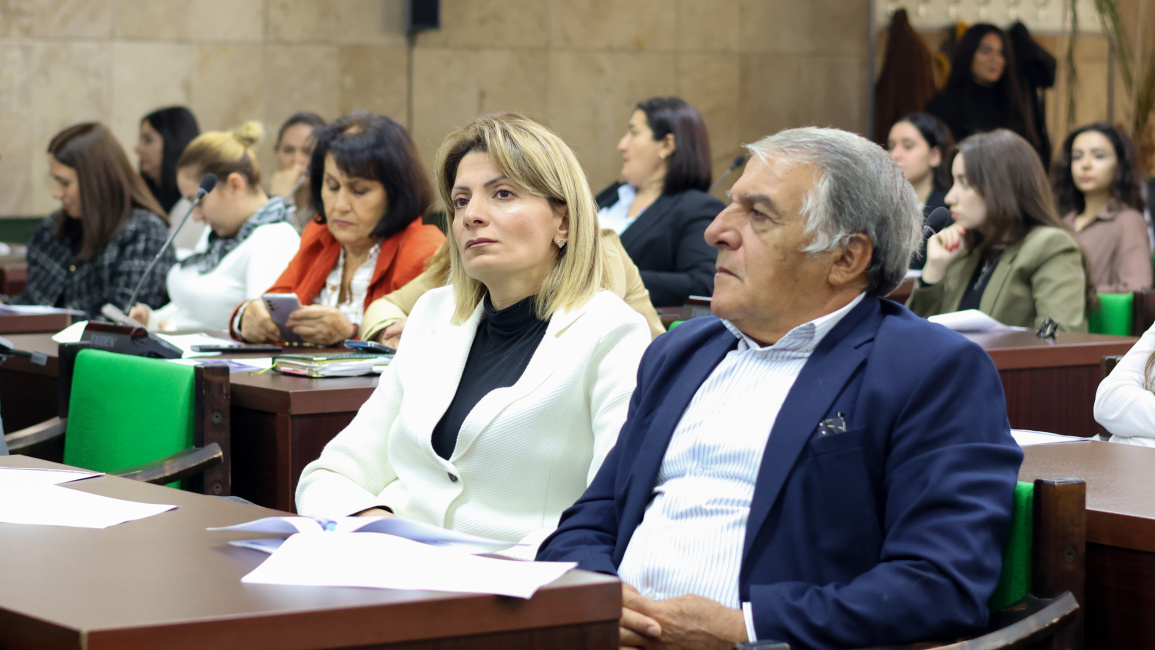
In his opening remarks, YSU Rector Hovhannes Hovhannisyan emphasized the impact of digital transformations on the future of education: "It has become a tradition that each year, on the occasion of Social Worker's Day, the Faculty of Sociology organizes a scientific or social event. Today, we are not only marking this important day but also addressing the pressing issues of digital transformation in education and research. The digital age presents both new opportunities and new challenges—particularly in terms of academic integrity, the quality of education, and the value of knowledge."
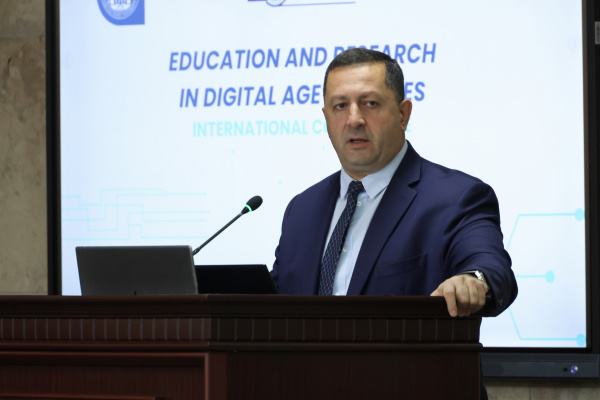
The rector highlighted that digitalization at YSU is regarded as a key to modernizing education: "Artificial intelligence, new models of online collaboration, data-driven science, and open-knowledge platforms are redefining the entire structure of learning. At YSU, our goal is not only to keep pace with these changes but to lead them—by shaping a new educational culture."
He also congratulated the team of the Distance Learning Laboratory on its 20th anniversary, commending their contribution to the application of innovative teaching methods: "The Distance Learning Laboratory is among our university's pioneers in introducing educational technologies. We are delighted to note that innovative methods, AI tools, and hybrid learning models are being continually tested here—gradually becoming an integral part of educational practice."
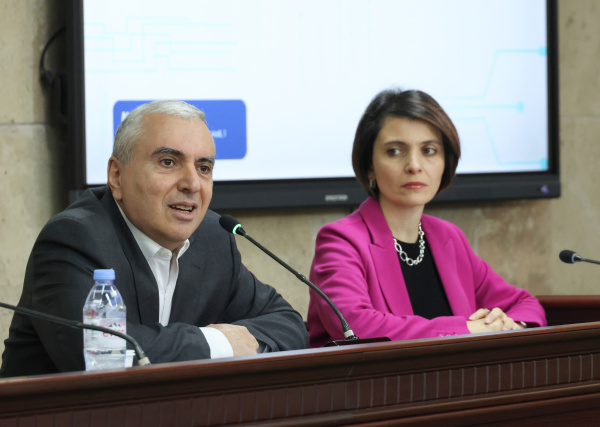
Dean of the Faculty of Sociology, Artur Mkrtichyan, underlined the significance of the conference in expanding scientific dialogue and establishing new partnerships: "The conference seeks to provide a new platform for discussions on how digital technologies are transforming the structures of education, research, and social life. Digitalization is not merely a tool—it is a value system that reshapes our thinking about how knowledge is perceived and created. We must respond to these changes in a timely manner and build an environment where digital skills are integrated with humanistic and social knowledge. This conference will serve as an effective platform for exchanging ideas, fostering cooperation, and forming new scientific directions."
Professor Barbara Oakley from Oakland University (USA) delivered the keynote presentation titled "Reimagined Learning: How Neural Insights Can Revolutionize Education in the Age of AI".
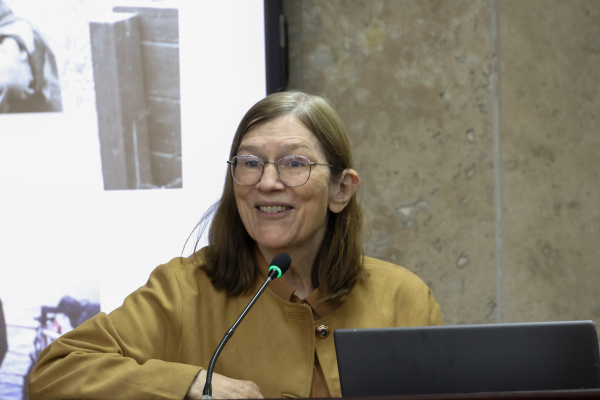
Professor Oakley, a world-renowned expert in the field of learning neuroscience, discussed how the human brain's learning mechanisms can be combined with the principles of artificial intelligence to create more efficient educational systems: "Artificial intelligence can help us better understand how we learn, but true progress is possible only when technology serves to unlock human potential. The future of learning lies in combining the achievements of neuroscience, psychology, and technology to create personalized educational pathways for each learner."
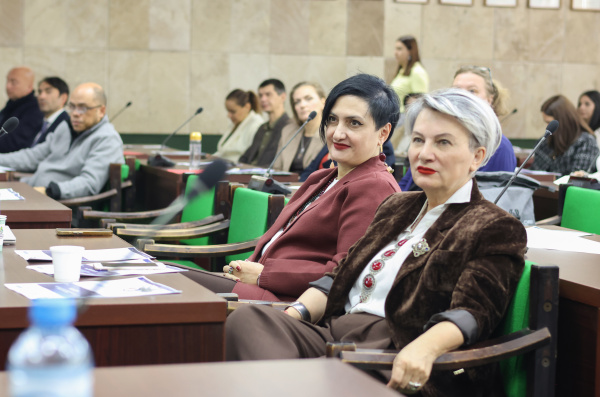
She also noted that the digital era offers unprecedented opportunities for self-directed and networked learning, but it also demands new approaches to student motivation, attention management, and knowledge retention: "In the digital era, learners face the pressure of information overload and reduced attention spans. This is precisely where we need scientifically grounded methods to make the learning process more effective and engaging."
Experts from YSU and other Armenian universities, as well as from Austria, the United States, Denmark, France, Czechia, Russia, and Kuwait, delivered presentations at the conference. Panel discussions covered best practices in digitalization within educational systems, innovative research approaches, and potential avenues for collaboration. The two-day conference will continue its sessions tomorrow.
